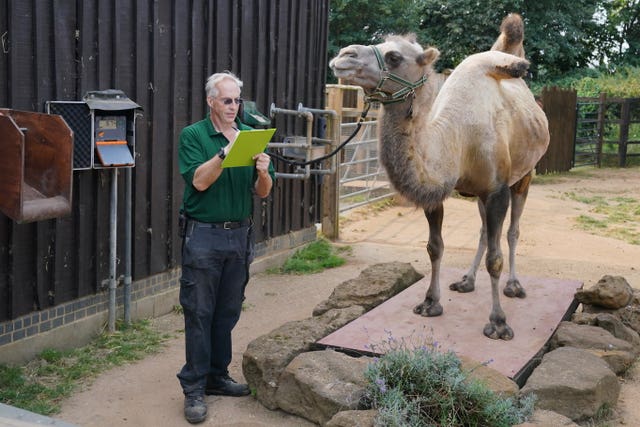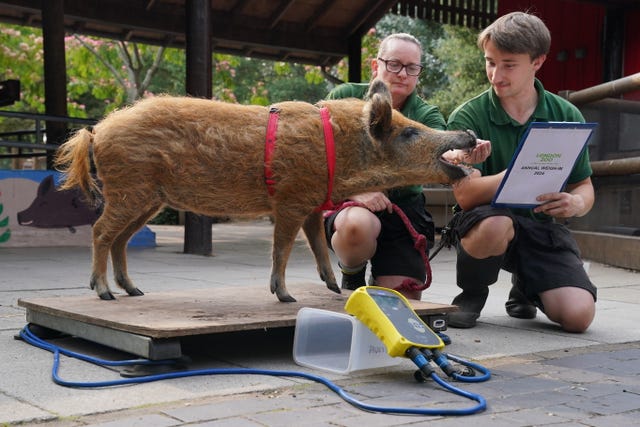Keepers find creative ways to measure animals at zoo housing 14,000 creatures
Staff at London Zoo need to tempt every mammal, bird, reptile, fish and invertebrate by placing food next to the scales to check their health.

Zookeepers will be challenged to find creative ways of taking measurements at London Zoo, which houses 14,000 animals, as part of its annual weigh-in.
The zoo staff will need to gently tempt every mammal, bird, reptile, fish and invertebrate, from Humboldt penguins to camels and lion cubs, by strategically placing food next to the scales to check their health and wellbeing.
The annual measurements are taken to ensure the zoo’s data is accurate and up to date, and the are added to the Zoological Information Management System (Zims), which is a database shared with keepers across the globe to help compare information on thousands of threatened species.
Angela Ryan, head of zoological operations at London Zoo, said the weigh-in, which began on Monday and can take up to a week, will form an important part of gathering data to help protect animals in the wild.
Although the zoo houses more than 14,000 animals, Ms Ryan said the keepers will only have time to measure and log the weight of around 400 creatures.
She told the PA news agency: “Today is the annual weigh-in so it’s a day or a week long, really, where we’re going to weigh all our animals and make sure we’ve got it recorded on a database.
“It’s a database called Zims… and that’s something that all zoos around the world use.
“We can then share our data, we can check that our animals are all in the same kind of bracket, with their weights healthy, but also something that we can share with conservationists in the field, which is really important to us.
“The research that we can do here on our animals is then used to help protect them in the wild.”

Ms Ryan added that the annual weigh-in, measuring weight and waist size, can help inform staff and veterinarians about an animal’s condition.
“Knowing the stages of pregnancy, for example, the weight changes, and the time at which they change, is important,” she said.
“Knowing how an animal grows, making sure it’s growing properly. If it’s a young animal… they are growing and they’re a lovely weight and we can also look at their weight compared to how their body condition looks.
“It’s also great to have a weight. If an animal gets sick, the vets want to know what the weight is quite quickly, so they can give you the right medication doses. Or if they need to do any anaesthetics, they can do them quickly.”

The zoo animals have different personalities, so keepers will be challenged to find imaginative ways to coax the creatures on to the scales, which Ms Ryan said is part of the staff’s “enrichment”.
“Weighing the animals is enrichment for our keepers, especially in some of those exhibits that maybe have lots of different animals in there – like our rainforest, where we’ve got sloths and we’ve got monkeys and birds, and they all want to be weighed at the same time,” she said.
“Being able to split them all apart and make sure we get single weights for each animal, identifying each animal at the same time, can be quite challenging.”

Among the animals being weighed for the first time are three endangered Asiatic lion cubs named Syanni, Mali and Shanti, who were born at London Zoo in March.





